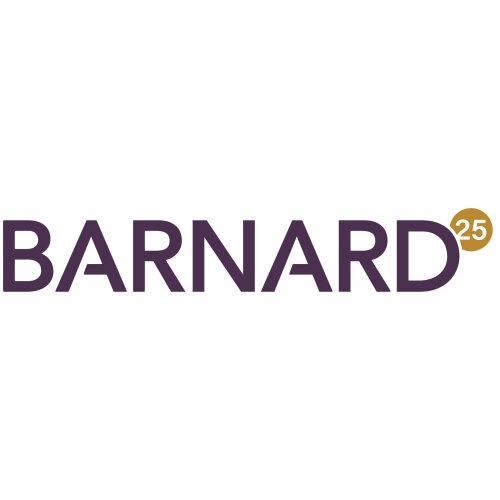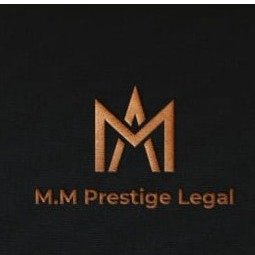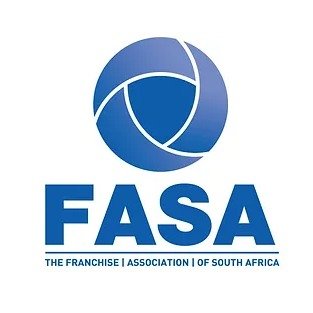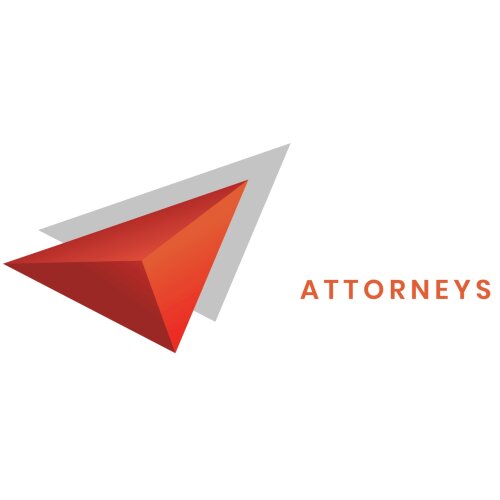About Barnard
Barnard Incorporated is a leading and full-service commercial law firm based in Pretoria, South Africa. We provide a comprehensive range of legal services, including corporate and commercial law, property law, commercial litigation, mediation, insurance, wealth protection and family law. Voted the Most Innovative Law Firm in Africa by Law.com (ALA) in 2022, we constantly work to achieve the best results for our clients. On the international stage, Barnard Inc is the exclusive South African member of the International Commercial Law Alliance (ICLA) and our legal expertise is recognised by the leading global peer-review guide, Best Lawyers.
About Barnard
Founded in 1998
200 people in their team
Practice areas
Languages spoken
Social media
Free • Anonymous • Expert Lawyers
Need Personal Legal Help?
Connect with experienced lawyers in your area for personalized advice on your specific situation.
No obligation to hire. 100% free service.
Practice areas
Business
Business Growth & Governance (Corporate & Commercial Law)
Barnard is committed to providing corporate legal services for intelligent and sustainable economic growth and development.
- Legal Audits and Legal Due Diligence Investigations →
- Data Protection and Privacy Laws →
- Mergers and Acquisitions →
- Corporate Law, Company Secretarial and Tax →
- Intellectual Property Commercialisation and Monetization →
- Legal Contract Management →
- Procurement and B-BBEE →
- NCR Registrations →
- Hospitality Law →
- Small Business and Start-ups →
- Zimbabwe Exemption Permit Conversions →
Banking & Finance
Insurance
Insurance Law
In the competitive field of insurance law we have expertise in specialty insurance lines to manage key emerging risks including cyber and IT, life sciences, IP, social media and environmental liability. We advise insurers, brokers, underwriters and businesses operating nationally and internationally across most lines of insurance.
Allied to the pursuit of legal ingenuity, our insurance team has played an integral role in the development of legal solutions and systems for one of the continent’s largest short-term insurers.
Insurance Recoveries and Liability Litigation
By harnessing the learnings and successes of bespoke solutions to which our team have been party, Barnard Inc. is uniquely positioned to help insurance companies develop a bespoke legal solution that:
- Provides greater returns
- Improves speed and efficiencies
- Affords instant access to reporting on matters
- Ensures legal and compliance stability and transparency
- Allows for the development of proprietary reporting applications
- Assists in greater alignment and measuring of Terms of Service and KPIs
Energy, Environment & ESG
Corporate & Commercial
Intellectual Property
Intellectual Property
In a world where technology and scientific advancements regularly yield IP assets of significant value, it is essential to work with a trusted adviser who has a deep understanding of the regulatory and commercial issues that surround the protection and enforcement of these rights.
We have experience in advising on IP matters in South Africa and internationally, and our clients range from solo inventors and start-ups, to multinationals with global operations.
- Protection, management and enforcement of all IP assets.
- IP due diligence and audits structuring and M&A and private equity related deals involving IP assets.
- Structuring of IP ownership, as well as securitisation and IP valuations.
- IP exchange control and tax advice, particularly important for transfers of rights across South African borders.
- Advice related to the commercialisation of IP and how these assets may be protected by registration, monetised by licensing and assignment, enforced, secured and leveraged to their maximum potential.
- Commercial drafting for transactions involving IP such as licensing, distribution, technology transfer, investment agreements, research and collaboration agreements, franchise agreements and global joint ventures.
Trademarks
A trademark is defined as a mark used to distinguish the goods or services of one undertaking from those of other undertakings. This can be in the form of words, drawings, signs, symbols, colours or combinations thereof. A trademark can be a slogan, name, logo, a specific shape or a combination thereof. The following facts should be considered when registering a trademark:
- It takes approximately 2 years to register a trademark;
- In terms of Section 9 of the Trademarks Act a mark must be distinctive and be able to distinguish goods and services from the same kind of goods or services which are connected in the course of trade with another;
- Section 10 of the Trademarks Act places prohibitions on the registration of marks and lists the negative attributes which trademarks may not possess;
- A trade mark can therefore only be allowed to be registered and remain on the register if it is distinctive, as defined in section 9 and if it does not contravene any of the provisions of section 10;
- Trademarks are territorial and registration only grants rights in the country in which the trade mark is registered. If a trade mark owner wishes to use and protect his trade mark in more than one country, then he should apply for registration of his trade mark in each of those countries;
- Trademarks registration is subject to classification in one of 45 different classes. The first 34 classes relate to goods and the remaining 11 classes relate to services (e.g. banking services, construction, transport and education);
- It is possible for a product or service to be registered in more than one class; and
- Businesses have to renew their trademarks every 10 years.
Patents & Designs
A patent is a form of protection that provides a person or legal entity with the exclusive rights to manufacture, use, license or sell a concept or invention in the territory where the patent is granted.
If you are the inventor of a new invention which can be used or applied in trade, industry or agriculture and you want to prevent other parties from manufacturing your invention, you can protect your invention by registering a patent. To do so, however, your invention must fulfil the requirements of patentability.
A granted patent is valid for 20 years. This entails that the owner of a patent is granted an exclusive legislative right to manufacture, exercise, dispose or offer to dispose of or implement the invention, in the region where the patent has been granted, so that he/she/it shall have and enjoy the whole profit and advantage accruing by reason of the invention.
After 20 years, all the information pertaining to the invention will fall in the public domain and other persons or entities may use this information to manufacture or sell generic replicates of such invention.
Copyright
Intellectual property is a term used to describe the products of the human intellect and include designs, trademarks, patents and copyright. These products of the human intellect are protected by legislation which confers upon the creator of the product, for a limited period, exclusivity as to the exploitation thereof and in essence to capitalise financially from the product. Copyright is a subdivision of the bundle of Intellectual property rights which, under the South African Law is governed by the Copyright Act 98 of 1978.
A common misperception with regards to copyright is that it is a registerable right like patents, designs and trademarks. Copyright however, in terms of the Copyright Act, subsists automatically in specified categories of works which are outlined and defined by the Act. The Copyright Act does however set forth the requirements that have to be met in order for copyright to subsist in a work. Classes of Copyrighted works include, amongst others, Literary works, Musical works and Computer programs.
For copyright to subsist in a work, the work must be original. The Copyright Act does not provide a clear-cut definition of what constitutes an original work and one has to consider previous case law in the determination of whether a work is in fact original. In considering the courts view on what is deemed as an original work it is evident that the requirements for originality are not extensive. To determine whether a work is original, the courts rely on a factual enquiry.
This means that facts have to be presented to the court to subjectively make a decision whether a work is in fact original or not. The courts are of the view that for a work to be original it must not have been copied from a prior work of another person but rather have been made through the skill and effort of the author thereof, or as the courts put it, as a result of the “sweat of the brow” of the author.
IP Commercialisation
Obtaining a patent for an invention; a trademark for a brand name; a design right for a new design or even having copyright in works is merely the first step in protecting and enjoying your IP.
The next phase in the successful exploitation of your IP is the commercialisation thereof. There is a multitude of ways to commercialise your IP in order to produce maximum profit from it which includes:
IP LICENSING & FRANCHISING
One of the most powerful ways to maximise the efficiency of your IP is by licensing your IP rights to third parties.
All forms of IP (Patents, Designs, Trademarks, Copyright and Confidential Information) can be licensed to third parties in the form of a licensing or a franchising agreement.
In a licensing agreement, the owner of the right (the licensor) authorises a third party (the licensee) to utilise the rights in exchange for a fee or a royalty. The licensing of IP is the most common method of commercialisation.
Franchising agreements are specialised licensing agreements used to expand an existing brand or product and usually incorporates the use of Trademarks, Copyright and/or Know-how.
The terms of licensing agreements are open for negotiation between the parties.
DISTRIBUTION
Distribution agreements can be concluded with third parties in the event that one does not possess the necessary resources to distribute the product to a region where the demand is high.
CESSION & ASSIGNMENT
IP is an asset, and as such, rights in IP can be sold or ceded to third parties or even used as security in commercial agreements. A cession agreement as well as assigning the rights to third parties are both forms of commercialising IP.
MANUFACTURING
Depending on the resources available to an owner of the IP, there may exist a need to enter into an agreement with a factory or other large-scale manufacturer to reproduce the item or product in which the IP subsists.
PROFIT-SHARING
Where two respective owners of different IPs wish to collaborate all their IP and produce a final product, the profits generated by the joined IP can be shared between such parties and can be manifested in a profit-sharing agreement.
Family
Family Law
We have extensive experience in those areas usually associated with family law, such as divorce, parental rights and responsibilities, maintenance and adoption.
Our family law department specialises in family mediation, antenuptial contracts, cohabitation, same sex relationships, paternity, curatorship applications, relocation matters and international maintenance cases. We have also recently become involved in the area of collaborative divorce, which we believe may be the way of the future in divorce law.
The outcomes of clients’ marriages, divorces, maintenance disputes, residence and contact disputes and international relocations affects every other area of their lives, reaching long into the futures of themselves and their children. We therefore believe in managing clients’ cases closely with them and, where necessary, a multidisciplinary team of experts.
We work closely with several psychologists and social workers who specialise in the effects of divorce on children and on the parties themselves. We have excellent professional relationships with a number of specialist advocates, forensic accountants, property valuers, maintenance court experts, tracing agents and private investigators.
- Adoption
- Antenuptial contracts
- Children’s Rights
- Civil Unions
- Curatorship
- Collaborative Law
- Divorce
- Divorce Mediation
- Domestic Partnerships
- LGBTQIA+ Rights
- Maintenance
- Mediation
- Parental Rights and Responsibilities
- Reproductive Law
- Surrogacy Law
Lawsuits & Disputes
Alternative Dispute Resolution
It is always advantageous for parties who are hoping to resolve any dispute to consider Alternative Dispute Resolution (ADR) rather than going through the traditional court structures. The primary benefit of ADR is reduced cost, process flexibility, confidentiality, time saving and legal expertise.
Alternative Dispute Resolution can be used to resolve complex commercial and corporate disputes, with Arbitration and Mediation being the main types of ADR. The ADR methods can be used outside, or in addition to, formal court proceedings.
Our Alternative Dispute Resolution team has an established track record of representing parties in arbitration and mediation proceedings, as well as a combination of the processes - to quickly and efficiently resolve any disputes.
Arbitration
Our ADR team has significant experience, and an excellent success rate, in advising on commercial arbitration matters and corporate disputes. We have represented parties in both the public and private sectors, in many complex, high-stakes commercial disputes.
Our ADR team assists with every stage of the dispute process: from negotiating the arbitration clause, to managing the conflict at a project level, prosecuting or defending the claims, and effecting enforcement.
Mediation
The Barnard Inc. ADR team has successfully assisted in many corporate and commercial mediation disputes, in a wide variety of industries including construction, engineering, retail and insurance.
We assist our clients in preparing for mediation by providing detailed advice and counsel throughout the mediation process. Once a process is resolved our specialists will draft the necessary settlement agreement and follow-up the enforcement thereof to completion.






